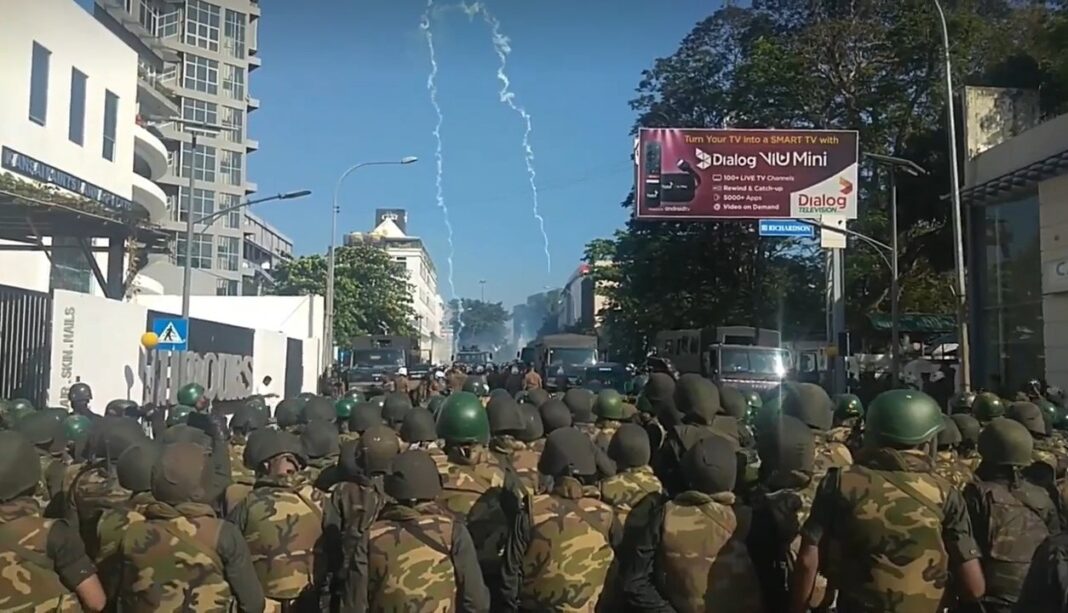The Police Department, on Tuesday the 14th , instructed the relevant officers from regional commands to send the surplus anti-riot equipment kept in storage which are allocated to Police divisions in other districts, to the Police Field Force Headquarters (HQ) in Colombo.
The order, issued recently, is in anticipation that a wave of protests by trade and university student unions may escalate in the coming days.
Speaking to The Daily Morning, Police Media Spokesman, Senior Superintendent of Police and Attorney-at-Law, Nihal Thalduwa said: “There is a surplus of anti-riot equipment in regional Police stations as there is less need for such in those areas. As most of the protests are being held in Colombo, the Police has instructed the relevant officers to hand over their excess equipment to the Police Field Force Headquarters. That is because the equipment should be available in the areas in which they are most needed.”
Senior Deputy Inspector General of Police (SDIG) – Support Service, Sajeewa Medawatte had issued a circular dated 14 March, in this regard, to the SDIGs of the North Central, Eastern, Southern, North Western, and Central Provinces, and the Officers-In-Charge (OICs) of the Anuradhapura, Batticaloa, Elpitiya, Kurunegala, Matale, Polonnaruwa, Tangalle, Kandy, Kantale, Nuwara Eliya, Puttalam, and Trincomalee Police Divisions. Through the circular, which was seen by The Daily Morning, the relevant officers had been instructed to hand over the anti-riot equipment including gas masks, riot shields, riot helmets and rubber batons available in the respective Police divisions to the Police Field Force Headquarters before 10 p.m. on the same day.
The requested equipment included 575 gas masks, 525 riot shields, 505 riot helmets and 1,050 rubber batons. It is notable that the relevant Police officers have been instructed to hand over the anti-riot equipment belonging to the Police divisions outside the Western Province to the Police Field Force Headquarters in Colombo before 10 p.m., ahead of the series of trade union actions including strikes and other forms of protests which were launched by trade unions representing several categories of professionals, demanding solutions to the prevailing issues, and against the newly introduced tax policies.
Sri Lanka has seen a series of protests over the course of last year (2022), during which the demand for the resignation of then President Gotabaya Rajapaksa and the Government led by him, saw an elected Executive President resign. Last year, the “argalaya” (people’s struggle) protest movement reached their climax when hundreds of thousands of people gathered in Colombo, and occupied several State owned buildings including the Presidential Secretariat, the President’s House and the Temple Trees (the Prime Minister’s official residence), which in turn resulted in Rajapaksa’s resignation. Incumbent President Ranil Wickremesinghe, who was elected as the President in a Parliamentary vote in July 2022, following Rajapaksa’s resignation, has since been seen directing the security forces, mainly the Police, to take strict actions against protest movements, which he claims disrupt the economic recovery efforts that are underway.
TM
